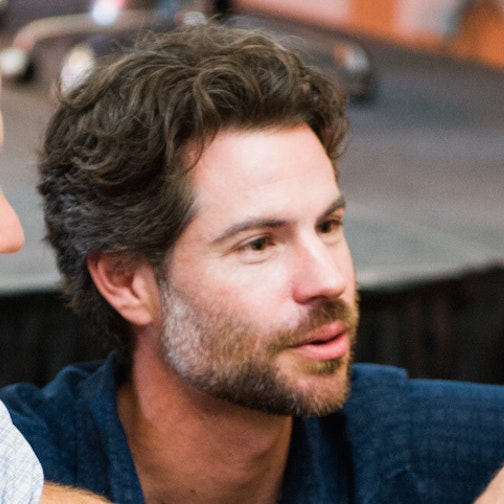Welcome to The Breakthrough
-
-
Share
-
Share via Twitter -
Share via Facebook -
Share via Email
-
It is with great excitement that we today announce the launch of The Breakthrough, the new web site of Breakthrough Journal, the Breakthrough Institute, and all of our programs. We designed the site to provide visitors with a better understanding of who we are, what we believe, and what we do.
We hope you'll take a minute to read about our mission, our history, and our community of Senior Fellows, Fellows, Staff, and Authors.
We are especially excited to announce three new Breakthrough columnists:
Michael Lind is a national political and economics expert, and the author of Land of Promise: An Economic History of the United States (Harper Collins 2012), which the New York Times' David Leonhardt called a "strong case" for Hamiltonian liberalism. Mike has been a bright star in American letters for 20 years. The author of 10 books, hundreds of articles and columns, and a children's book, he has also had his poetry read on Garison Keller's "A Prairie Home Companion." Mike has a sense of history (and humor) that is rare in political life, and we are honored to have him writing a regular column for The Breakthrough.
Roger Pielke, Jr. is one of the world's leading experts on science and politics, author of two widely acclaimed books, The Honest Broker: Making Sense of Science Policy and Politics (Cambridge 2007) and The Climate Fix: What Scientists and Politicians Won't Tell You About Climate Change. He has spent almost 20 years researching many facets of climate change, especially disasters like floods and hurricanes, as well as international energy policies and geoengineering. Roger has been a leading advocate of greater transparency, accountability, and integrity in climate science, which he sees as a necessary correlate to our ability to implement effective climate policies. Roger has been recently turning his critical eye to economic growth, and in particular innovation, manufacturing, and education -- the subjects of a forthcoming book. We are glad he has allowed us to host his blog at The Breakthrough, and welcome his heterodoxical, intelligent, and often provocative, readers.
Matthew Nisbet is a leading social scientist who studies the role of communication in policymaking and public affairs. He is co-author of the new Breakthrough Journal article, "The Polarization Paradox: Why Hyperpartisanship Strengthens Conservatism and Undermines Liberalism." Matt is also the author of the landmark 2011 Climate Shift report, which Nature called "essential reading for anyone with a passing interest in the climate change debate." Over the past decade, he has published more than 50 peer-reviewed studies, book chapters, and reports, which have been cited more than 800 times in the peer-reviewed literature and in more than 300 books. Nisbet has been a Health Policy Investigator at the Robert Wood Johnson Foundation, a Google Science Communication Fellow, and is currently a Shorenstein Fellow at Harvard University's Kennedy School of Government.
While The Breakthrough is an intellectual and analytical community drawn together by a broadly shared vision and core values, we also highly value debate and discussion -- including and especially among Breakthrough authors and Senior Fellows -- in service of philosophical, analytical and moral clarity. "Conflict," Max Weber noted, "is the gadfly to thought." We hope we can facilitate important debates here that are pointed and intense, but also civil and elevated. Substantive comments on the Voices are welcome and encouraged, and readers with more to say are encouraged to pitch story ideas by emailing journal [at] theBreakthrough.org.
As Mike Lind notes in his opening column, the bitter divisiveness that characterizes American political life is more a function of the exhaustion of old paradigms than any of the more proximate causes, like negative campaigning, or our fractured media environment. Liberalism, our own tradition, must be modernized -- as must conservatism -- if the American dream is to survive. In "The Polarization Paradox,” Nisbet and co-author Dietram Scheufele add that liberals must “turn more attention and resources to rebuilding our civic culture... re-forming our civic and political institutions in ways that create some possibility for moderation, deliberation, and crosscutting discourse.” “Without a functioning civic culture," they write, "there can be no progressive governance.”
Photo Credit: Gabriel Harber

